Thanks to everyone who took part in this research I led for the Neurodivergent Task & Finish Group! We explored neurodivergent perspectives on a strengths & needs-led approach in schools—support that focuses on strengths and support needs, and can be used without waiting for a diagnosis.
Key takeaways:
🌱 Promising but fragile ➕ Should complement, not replace, diagnosis 👥 Must be genuinely co-produced
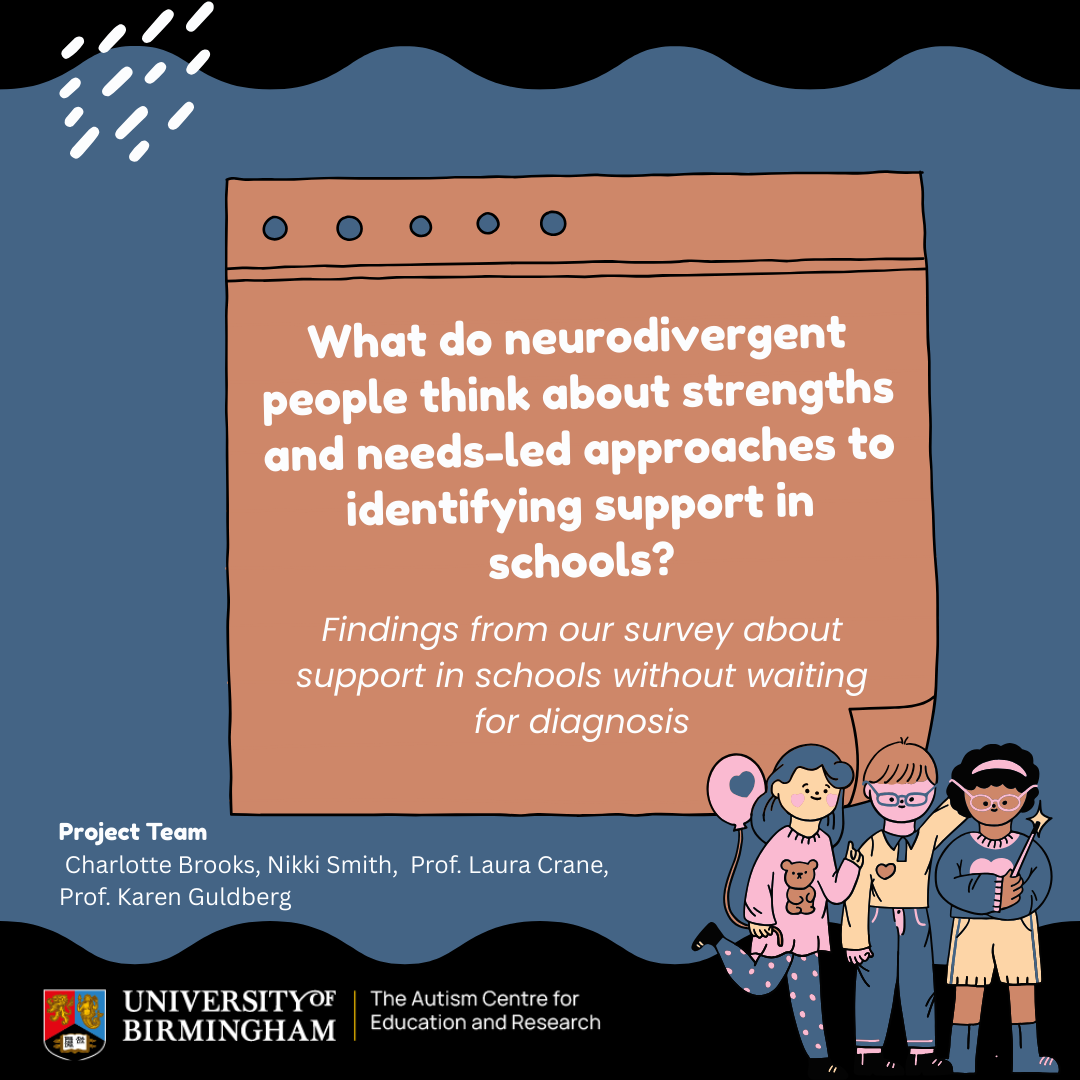
Young people wanted to understand strategies for creating inclusive environments that ensure nonbinary autistic students feel supported throughout school. From participants in my PhD research, these questions inform a subsequent study with teachers #AutRes

My participants were curious about how teachers recognise and support diverse identities, experiences and needs to help them feel included, respected and understood in school. From participants in my PhD research, these questions inform a subsequent study with teachers #AutRes

Young people were uncertain about what training their teachers had about autism and gender diversity or what was included in training. From participants in my PhD research, these questions inform a subsequent study with teachers #AutRes
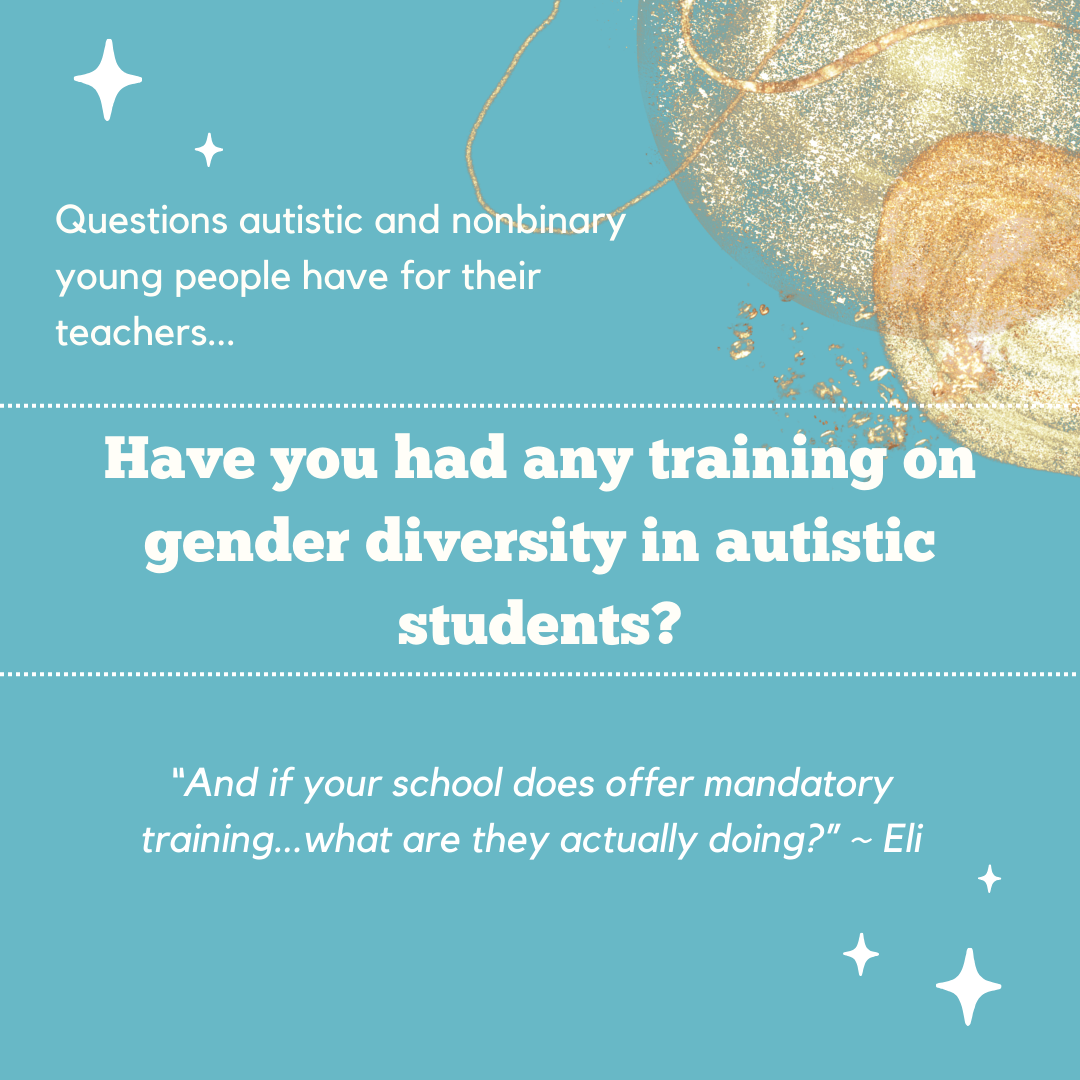
Reflections on the trouble with strengths-led assessments as a neurodivergent person with a spiky profile
Assessments, especially diagnostic assessments, have typically been pathologising - under a health framework, assessments are ways of putting labels on you that determine whether or not you might get support, and could alter how others see you.
However, after supporting someone close to me in their PIP review (a welfare benefit in the UK), I reflected on how the experience would be if it included a strengths-led component, and I think that would STILL be really scary!
As neurodivergent people we have spiky profiles, but there is little understanding out there in wider society. In an assessment situation that determines the outcome of support and provision, I don’t want to express having ANY strengths that could in any way get in the way of receiving the support I need and am entitled to.
An approach that is both needs and strengths-led could still be scary for CYP and their families. A young person might be trying to do the mental gymnastics of whether you can admit you’re good at Maths. Or that - actually - you don’t struggle with social interactions in your social group of other neurodivergent peers, but this is very much not the case in mixed-neurotype interactions.
For a CYP and their family to be able to engage with a strengths-led approach, there’s an awful lot of TRUST required - in the approach itself, in the school and staff around you. CYP and their families need to trust that an approach building on their strengths won’t take away from help they need in other areas.
I think this is something important to keep in mind as we develop approaches based on strengths-led support - for many CYP and their families, that trust is broken, and that trust is often broken inter-generationally. That trust will be hard to rebuild, but work to rebuild that trust is essential if approaches to building neuroinclusive school systems are to be effective.
Had a great time sharing my PhD research at #AutismEurope2025 on autistic nonbinary young people’s school experiences. Early findings highlight the importance of support identity as part of a holistic approach. Poster: thegoo.se/aec-poste…
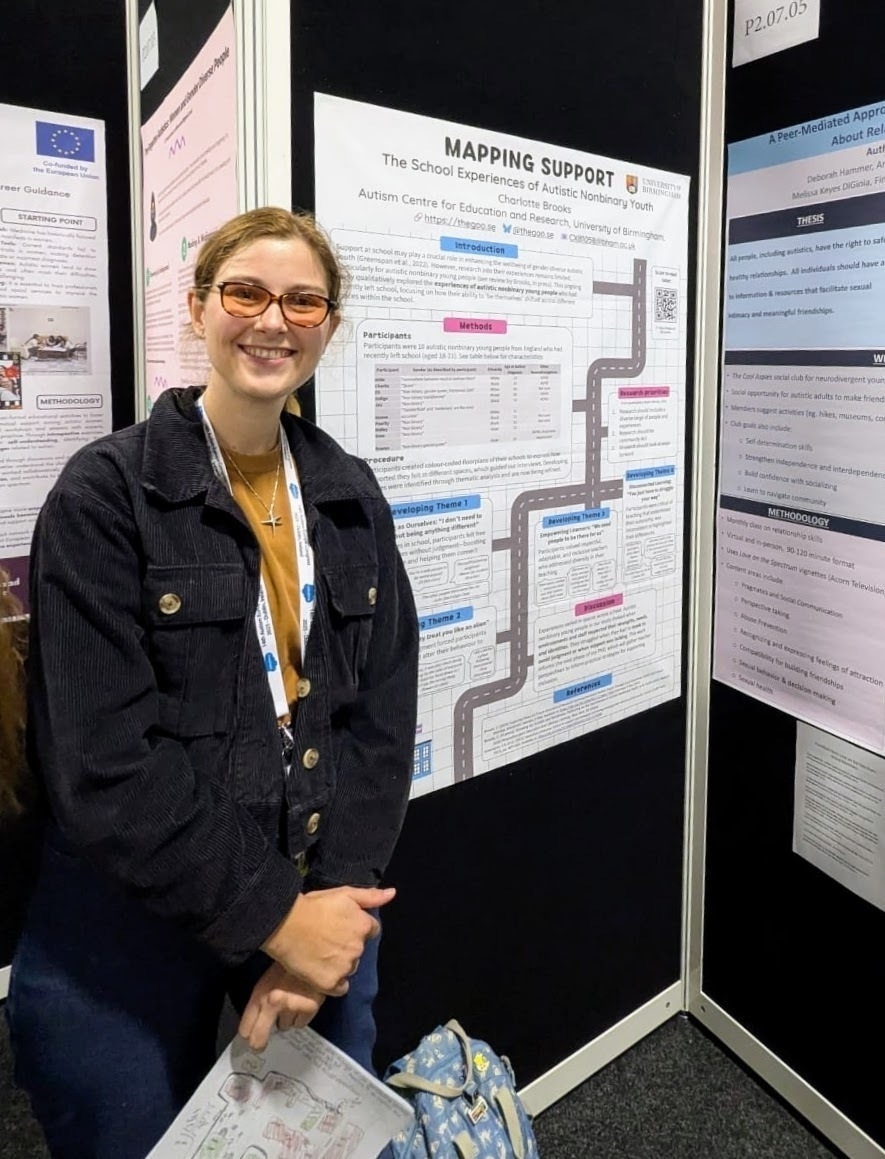
In my PhD, my participants drew floorplans of their schools, which guided our interviews and evoked the physicality of spaces around school. Colour coding added another layer, helping them to reference areas they felt more/less comfortable in the interview #AcademicSky #PhDlife #AutRes
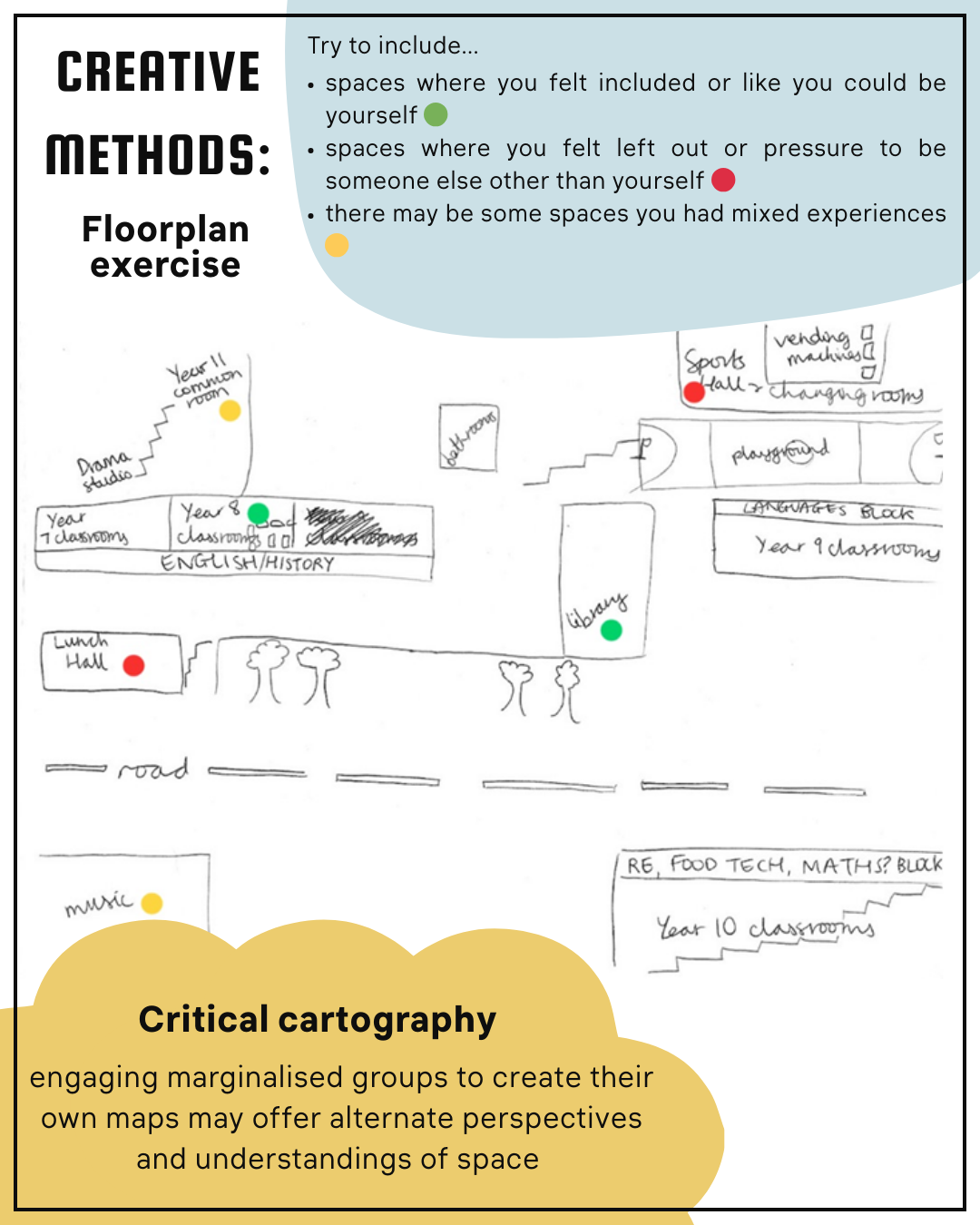
Are you a neurodivergent person over 16? Share your views to help improve support for neurodivergent young people in schools. Our survey supports the work of the Neurodivergence Task and Finish Group, and may influence recommendations to Government. Take part here: https://thegoo.se/survey
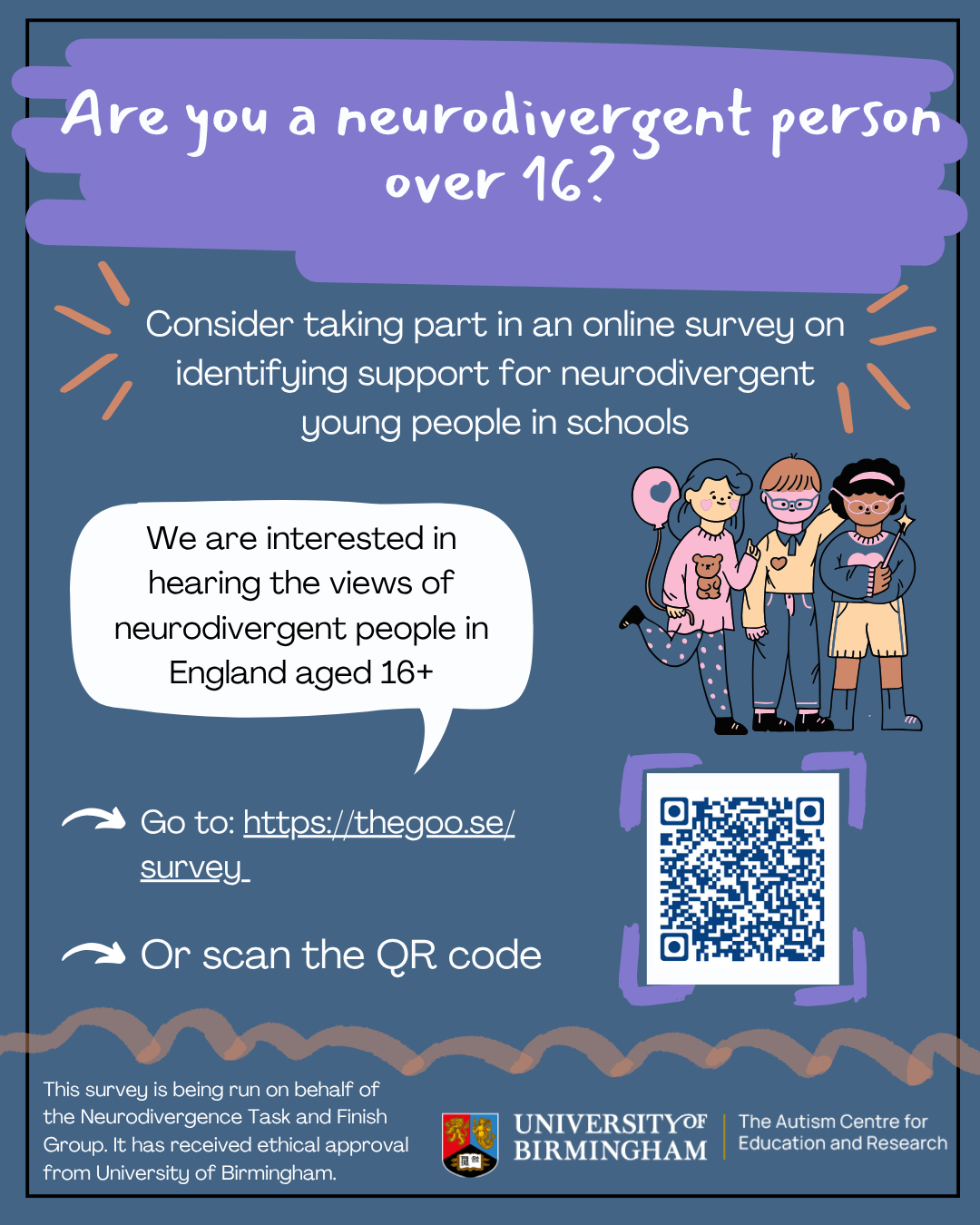
🏳️🌈 This past week I’ve been on holiday in Bergen, Norway, and there has been a lot of pride flags! 🏳️🌈
Initially I was cynical about ‘rainbow washing’, but I noticed it’s not just shops who have pride flags, but also homes, political buildings and public transport. It feels good 🤗


In my doctoral research,
- I’m interested in individuals' lived experiences
- I’m engaging with participatory methods
- I’m interested in knowledges that are situated in spaces within the school
How are the findings from my Master’s research informing my #AutRes PhD on the school experiences of autistic nonbinary young people?
-
I’m asking participants what they found supportive at school
-
(and what they wish was different)
-
I’m anticipating that findings will provide recommendations for schools
How are the findings from my Master’s research informing my #AutRes PhD on the school experiences of autistic nonbinary young people?
-
I’m guided by what past participants think research should focus on
-
I’ve asked for feedback on study materials and my analysis
-
I’m asking participants what teachers should be asked for interviews in the second phase of my research
How are the findings from my Master’s research informing my PhD on the school experiences of autistic nonbinary young people?
-
I’m focusing on underrepresented perspectives
-
I’m giving a choice of interview modality so non-speaking people can take part
-
I’m taking an intersectional perspective encouraging participants to talk about many identity aspects and how they interact
Welcome to a series of #AutRes posts highlighting key findings of my Master’s research1 where I interviewed nonbinary autistic people about what future research about them should look like.
3. Research should look at ways forward.
- Participants felt that research should focus on improving lives of autistic nonbinary people
- They felt research that reconfirms the negative experiences of nonbinary autistic people was less helpful
Quotes from Charlotte Brooks' research question
 *Quotes are transcribed verbatim from participants in Charlotte Brooks' research1
*Quotes are transcribed verbatim from participants in Charlotte Brooks' research1
-
Brooks, C. (2022) Exploring views on future directions of research involving nonbinary autistic people through lived experience. Master’s Dissertation. University of Birmingham. Available at: https://etheses.bham.ac.uk/id/eprint/13703/ (Accessed: 17 July 2024). ↩︎
Welcome to a series of #AutRes posts highlighting key findings of my Master’s research1 where I interviewed nonbinary autistic people about what future research about them should look like.
2. Research should be community led.
- Participants were engaged with research and aware of participatory research approaches
- They expressed that autistic gender diverse people should be involved in decisions and fairly compensated for their expertise at all stages of research process
 *Quotes are transcribed verbatim from participants in Charlotte Brooks' research1
*Quotes are transcribed verbatim from participants in Charlotte Brooks' research1
-
Brooks, C. (2022) Exploring views on future directions of research involving nonbinary autistic people through lived experience. Master’s Dissertation. University of Birmingham. Available at: https://etheses.bham.ac.uk/id/eprint/13703/ (Accessed: 17 July 2024). ↩︎
Welcome to a series of #AutRes posts highlighting key findings of my Master’s research1 where I interviewed nonbinary autistic people about what future research about them should look like.
1. Research should include a diverse range of people and experiences.
- My participants felt autism research did not represent the diversity of the autistic community or fully consider how identities may intersect
- They noted how the voices of gender diverse people, people of colour, and non-speaking autistic people are missing from research
 *Quotes are transcribed verbatim from participants in Charlotte Brooks' research*1
*Quotes are transcribed verbatim from participants in Charlotte Brooks' research*1
-
Brooks, C. (2022) Exploring views on future directions of research involving nonbinary autistic people through lived experience. Master’s Dissertation. University of Birmingham. Available at: https://etheses.bham.ac.uk/id/eprint/13703/ (Accessed: 17 July 2024). ↩︎
📖 I’ve submitted my first book chapter!
It’s for a book on Neurodivergent Education and Lifelong Learning being edited by @keatesresearch.bsky.social and @krysiawally.bsky.social! I’m so excited! My chapter reviews research on the experiences of nonbinary autistic young people #AutRes

How I think referencing will go… I know exactly what I need to cite, I’m so well-read and amazing 😎 How it actually goes… WHERE is the proof for this thing I know exists 😩
I both cite as I write & go back to find references afterwards, how about you? #AutRes
My amazing partner, @snugg.ie, has made me my very own website at https://thegoo.se!
🔬 I plan to post about my PhD and research
📲 The site will also bring together my social media profiles, so everything is in one place (with a bit of tech magic)
Check out https://thegoo.se/silly for a laugh 🪿
